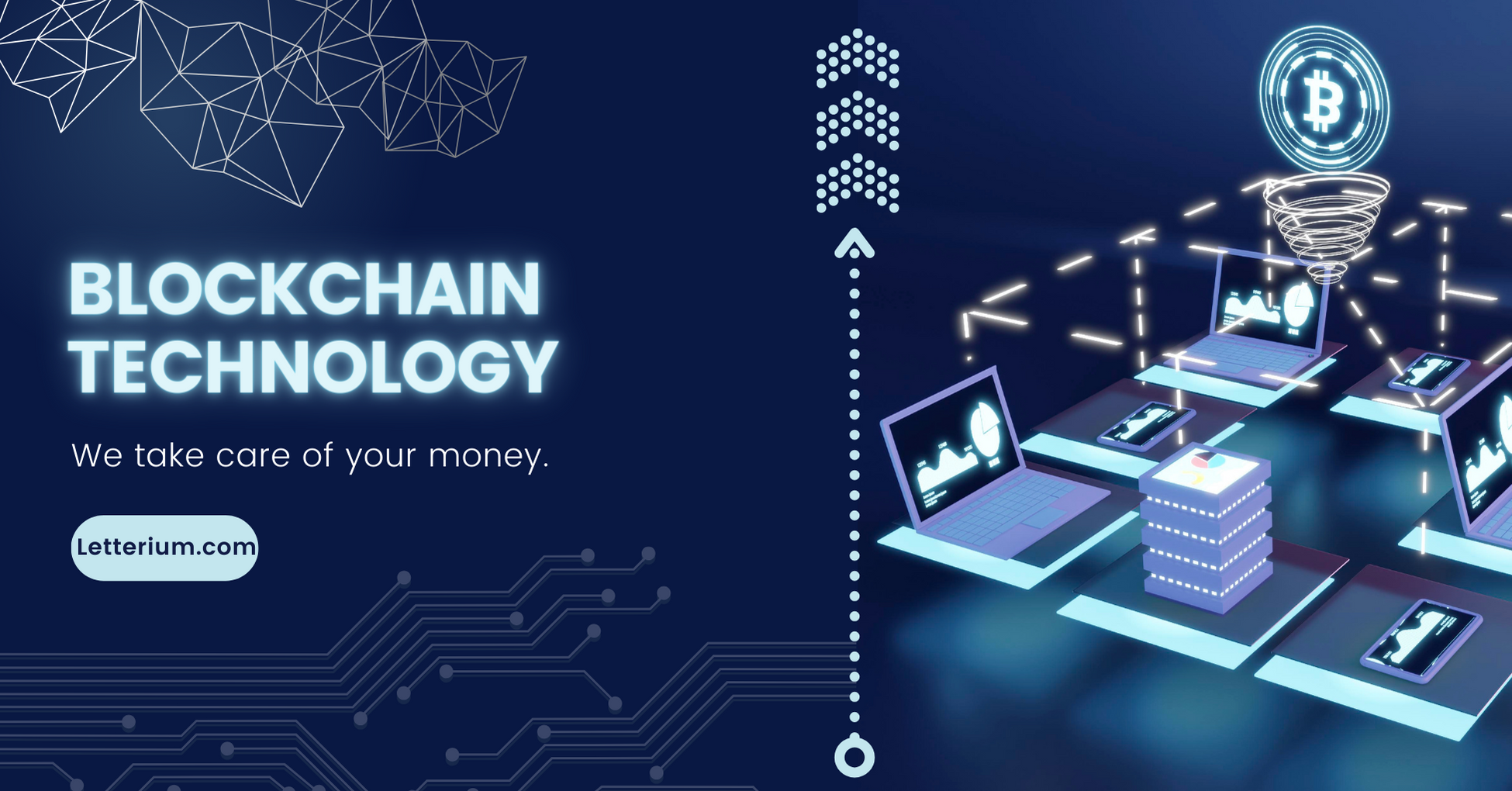Blockchain technology is revolutionizing the digital world by offering a secure, decentralized, and transparent way of conducting transactions and managing data across various industries. From underpinning the operations of cryptocurrencies like Bitcoin and Ethereum to transforming supply chain management, healthcare records, and even voting systems, blockchain's applications are vast and varied. This innovative technology ensures data integrity, reduces transaction costs, and enhances efficiency by eliminating intermediaries. As blockchain continues to evolve, its potential to reshape the technological landscape and its real-life implications are becoming increasingly evident, promising a future where transactions are more secure, transparent, and efficient.
What is Blockchain?

Blockchain is a distributed database or ledger that is shared among the nodes of a computer network. As a database, it stores information electronically in digital format. Blockchain is best known for its crucial role in cryptocurrency systems, like Bitcoin, for maintaining a secure and decentralized record of transactions. The innovation of blockchain is that it guarantees the fidelity and security of a data record and generates trust without the need for a trusted third party.
One of the key features of blockchain technology is its structure. The "blocks" in the chain contain batches of transactions that are validated by participants in the network, known as "nodes." Each block is connected to the previous one through a cryptographic signature known as a hash, which, along with the time-stamped batch of transactions, ensures the block's integrity. If any data in an earlier block were tampered with, it would require altering all subsequent blocks, which is computationally impractical, thus ensuring the immutability of the blockchain.
Blockchain operates on the principles of decentralization, transparency, and immutability:
- Decentralization eliminates the need for a central authority or intermediary to process, validate, or authenticate transactions.
- Transparency is ensured as all participants in the network have access to the blockchain and can verify or view transactions in real time.
- Immutability means that once a transaction is recorded in a block and added to the chain, it cannot be altered or deleted, ensuring the integrity of the entire transaction history.
Blockchain's potential applications extend far beyond cryptocurrencies. It is being explored and adopted in various fields such as supply chain management, healthcare, finance, voting systems, and more, offering solutions for secure, transparent, and efficient transactions and record-keeping.
Examples of Blockchain Technology
Blockchain technology, with its ability to provide secure, transparent, and decentralized solutions, has found applications across various industries beyond its initial use in cryptocurrencies. Here are some notable examples:
- Cryptocurrencies and Digital Payments:
- Bitcoin: The first and most well-known cryptocurrency, Bitcoin, introduced blockchain as a public ledger for all transactions on the network, providing security and transparency for digital currency transactions.
- Ethereum: Beyond just a cryptocurrency, Ethereum introduced the concept of smart contracts, which are programs that run on the blockchain and automatically execute when predetermined conditions are met, facilitating complex transactions and agreements.
- Supply Chain Management:
- Companies like IBM have developed blockchain-based supply chain solutions to enhance transparency and traceability. This allows businesses to securely and transparently track the movement and origin of products in a supply chain, from manufacture to delivery, reducing the risk of fraud and ensuring compliance.
- Healthcare:
- Blockchain is used to secure patient data and manage records. By decentralizing the storage of medical records, blockchain can offer a secure and interoperable system for sharing healthcare information between institutions and individuals, enhancing privacy and trust in the healthcare system.
- Banking and Finance:
- Blockchain technology is transforming the banking and finance sector by facilitating faster and more secure transactions, reducing the costs associated with traditional banking, and offering innovative financial services like decentralized finance (DeFi), which operates without central financial intermediaries.
- Real Estate:
- By using blockchain to record, track, and transfer land titles and property ownership, the real estate industry can significantly reduce fraud, increase transparency, and streamline transactions by eliminating the need for paper-based record keeping and manual verification processes.
- Voting Systems:
- Blockchain-based voting systems can provide a secure and transparent mechanism for casting and counting votes, potentially reducing fraud and increasing voter turnout by allowing secure online voting.
- Intellectual Property (IP) and Copyrights:
- Artists and creators use blockchain to register and verify ownership of their work to protect and manage intellectual property rights. This enables a transparent and immutable record of ownership and transfers of IP rights.
- Food Safety:
- Blockchain is used in the food industry to track the production, shipment, and delivery of products in real-time. This can help in quickly tracing the source of contamination in the event of food safety incidents.
- Identity Verification:
- Blockchain offers solutions for secure digital identities, enabling individuals to have more control over their personal information and how it is shared and verified online, reducing fraud and identity theft.
- Gaming:
- The gaming industry utilizes blockchain to create and manage in-game assets that are owned by players rather than game developers. This facilitates secure and verifiable transactions of digital assets between players.
These examples illustrate the versatility and potential of blockchain technology across different sectors, promising to revolutionize traditional business models and operational processes by offering more secure, transparent, and efficient solutions.
Benefits of Blockchain Technology
Blockchain technology offers a myriad of benefits that are transforming industries by enabling secure, transparent, and more efficient transactions. Here are some of the key benefits:
- Increased Security: Blockchain enhances security in several ways. First, it uses advanced cryptography to create a secure and immutable record of transactions. Each transaction is encrypted and linked to the previous one. Additionally, because the blockchain is decentralized, it is less susceptible to hacking and fraud compared to traditional centralized systems.
- Enhanced Transparency: Transaction histories are becoming more transparent through the use of blockchain. Since blockchain is a type of distributed ledger, all network participants share the same documentation as opposed to individual copies. This shared version can only be updated through consensus, which means everyone must agree on it. To change a single transaction record would require the alteration of all subsequent records and the collusion of the entire network, making fraud more difficult.
- Improved Traceability: In industries with complex supply chains, like pharmaceuticals or luxury goods, blockchain helps securely trace the origins and histories of products. When exchanges of goods are recorded on a blockchain, you end up with an audit trail that shows where an asset came from and every stop it made on its journey. This historical transaction data can help verify the authenticity of assets and prevent fraud.
- Increased Efficiency and Speed: Traditional paper-heavy processes are time-consuming, prone to human error, and often require third-party mediation. By streamlining and automating these processes with blockchain, transactions can be completed faster and more efficiently. Since record-keeping is performed using a single digital ledger that is shared among participants, you don’t have to reconcile multiple ledgers, which leads to less clutter.
- Reduced Costs: For most businesses, reducing costs is a priority. With blockchain, you don’t need as many third parties or middlemen to make guarantees because it doesn’t matter if you can trust your trading partner. Instead, you just have to trust the data on the blockchain. Additionally, as everyone will have access to a single, immutable version, you won’t have to review so much documentation to complete a trade, saving on costs.
- Decentralization: Blockchain's decentralized nature means that it does not rely on a central point of control. A lack of a single authority makes the system fairer and considerably more secure. Decentralization means the network operates on a user-to-user (or peer-to-peer) basis.
- Empowerment of Users: Users can control all their information and transactions; this is especially significant in a digital world increasingly concerned with data privacy. Blockchain gives users the power to control their own data in many scenarios, including financial transactions and personal identity security.
- Innovation: Blockchain is driving innovation, particularly in the field of smart contracts, which automate agreements and transactions in a transparent and trustless manner. This is not only changing how we do business but also creating new opportunities for revenue and services.
These benefits demonstrate why blockchain technology is being so widely adopted across industries as varied as finance, healthcare, government, and the arts. Its capacity to provide secure, transparent, and more efficient systems makes it a significant technological advancement with the potential to revolutionize business operations and societal transactions.
Applications of Blockchain in Technology

Blockchain technology, with its distinctive features of decentralization, transparency, immutability, and security, has found applications across a wide range of technological sectors. Here are some prominent applications of blockchain in technology:
- Cryptocurrencies and Digital Payments: The most well-known application of blockchain is in cryptocurrencies, such as Bitcoin and Ethereum. Blockchain provides a secure and decentralized framework for conducting financial transactions without the need for traditional banking institutions, significantly reducing transaction fees and times.
- Smart Contracts: Implemented on blockchain platforms like Ethereum, smart contracts are self-executing contracts with the terms of the agreement directly written into lines of code. They automatically enforce and execute the terms of contracts, enabling trustless agreements and transactions without the need for intermediaries.
- Supply Chain Management: Blockchain enhances transparency and accountability across supply chains by providing a tamper-proof record of product journeys from manufacture to sale. This helps in verifying the authenticity of products, reducing counterfeiting, and improving supply chain efficiency.
- Identity Management: Blockchain can offer a more secure and user-controlled method of managing digital identities. With blockchain, individuals can have a single digital identity that can be used across multiple platforms, reducing the risk of fraud and identity theft.
- Voting Systems: By leveraging blockchain, digital voting systems can be made more secure and transparent. Blockchain can ensure that each vote is encrypted and securely recorded, reducing the risk of fraud and tampering while ensuring the anonymity of voters.
- Healthcare Data Management: Blockchain can securely store health records and ensure only authorized individuals can access them. This can improve the privacy and security of patient data, facilitate better data sharing among healthcare providers, and enhance patient outcomes.
- Decentralized Finance (DeFi): DeFi uses blockchain to create financial systems that operate without traditional financial intermediaries, such as banks. This includes services like lending, borrowing, and trading financial instruments, all conducted in a decentralized, transparent, and secure manner.
- Intellectual Property (IP) Protection and Royalties: Blockchain can track and manage intellectual property rights and automate royalty payments. Artists, authors, and creators can use blockchain to securely register their works, ensuring they are compensated fairly for the use of their creations.
- Real Estate Transactions: Blockchain can streamline real estate transactions by securely recording, storing, and transferring real estate titles and property records, reducing fraud, and speeding up transactions by eliminating the need for paper-based records.
- Gaming and Non-Fungible Tokens (NFTs): In the gaming industry, blockchain enables the creation of unique digital assets, such as in-game items or characters, represented as NFTs. This allows for true ownership of digital assets by gamers and the ability to trade or sell these assets outside the game in a secure manner.
- Internet of Things (IoT): Blockchain can secure the burgeoning IoT network, ensuring secure communication between devices, managing the huge volumes of data they generate, and automating tasks through smart contracts.
These applications illustrate the versatility of blockchain technology and its potential to revolutionize not only financial systems but also many aspects of technology and society by providing more secure, transparent, and efficient solutions.
Applications in Real Life
Blockchain technology extends its applications beyond the digital realm, impacting various aspects of real life with its promise of enhanced security, transparency, and efficiency. Here are several real-life applications where blockchain technology is making significant inroads:
- Supply Chain Management:
- Blockchain is revolutionizing supply chain management by providing transparent tracking of products from manufacturer to consumer. This transparency helps in verifying the authenticity of products, reducing fraud, and improving supply chain efficiency. For example, companies like Walmart have implemented blockchain to trace the origin of food products to ensure their quality and safety.
- Healthcare:
- In healthcare, blockchain offers secure and immutable storage of patient records, enabling seamless sharing of medical data among authorized professionals and institutions. This can significantly improve patient care and privacy, reduce the risk of data breaches, and ensure the integrity of medical records.
- Voting Systems:
- Blockchain technology can be used to create secure and transparent digital voting systems. By ensuring the integrity and anonymity of votes, blockchain-based voting systems can reduce the risk of fraud and manipulation, making elections more trustworthy and accessible.
- Real Estate Transactions:
- By streamlining the process of recording and transferring property titles, blockchain can reduce fraud, expedite transactions, and decrease the need for paper-based record keeping. This makes buying and selling property more efficient and secure.
- Identity Verification:
- Blockchain can provide a secure and immutable method of managing digital identities, reducing the risk of identity theft and fraud. This application is particularly relevant in online verification processes, where establishing trust is crucial.
- Educational Credentials:
- Educational institutions are beginning to use blockchain to issue certificates and degrees, ensuring their verifiability and permanence. This can significantly reduce the occurrence of credential fraud and simplify the process of checking educational backgrounds.
- Energy Trading:
- Blockchain enables peer-to-peer energy trading, allowing households with renewable energy sources, like solar panels, to sell excess energy directly to neighbors without going through a central grid, promoting the use of clean energy and potentially lowering costs.
- Intellectual Property (IP) and Royalties:
- Artists and creators can use blockchain to protect their intellectual property by securely registering copyrights and automating royalty payments, ensuring they are compensated fairly for their work.
- Charitable Donations:
- Blockchain can increase transparency in charitable organizations by tracking donations to ensure they reach their intended destination. This can help build trust between donors and charitable organizations, ensuring that funds are used as promised.
- Legal Industry:
- Smart contracts on blockchain platforms can automate and enforce legal agreements without the need for intermediaries, reducing the time and cost associated with legal processes and making them more transparent.
- Food Safety and Traceability:
- Blockchain can track the production, shipment, and delivery of food products in real-time. This traceability can quickly identify and address sources of contamination, improving food safety standards.
These real-life applications demonstrate the transformative potential of blockchain technology across various sectors by offering solutions that are not only more secure and transparent but also more efficient and equitable. As blockchain technology continues to mature, its impact on everyday life is expected to grow, offering innovative solutions to longstanding challenges.
Conclusion
Blockchain technology, initially developed as the backbone for cryptocurrencies like Bitcoin, has evolved far beyond its origins in digital currency. Its unique characteristics—decentralization, transparency, immutability, and security—have made it a revolutionary technology with the potential to transform a wide range of industries and aspects of daily life. From enhancing supply chain management and healthcare to revolutionizing voting systems and real estate transactions, blockchain's applications are vast and varied.
The benefits of blockchain, including increased security, enhanced transparency, improved traceability, and greater efficiency, position it as a transformative technology for businesses and society alike. Its ability to reduce costs and eliminate intermediaries, while providing a secure and immutable ledger, opens up new opportunities for innovation and efficiency in operations.
As we continue to explore and expand the applications of blockchain, it is clear that this technology holds the potential to significantly impact various sectors, making transactions more secure, transparent, and efficient. The ongoing development and adoption of blockchain technology will likely lead to new ways of conducting business, managing data, and interacting in the digital world, promising a future where trust is built into the system, rather than being reliant on external validations.
However, the journey of blockchain technology is not without challenges. Issues such as scalability, energy consumption, regulatory acceptance, and the need for standardization must be addressed to fully realize its potential. Despite these hurdles, the continuous innovation and integration of blockchain into different fields indicate a promising direction towards a more transparent, secure, and efficient digital future.
In conclusion, blockchain technology stands as a testament to the power of innovation to drive change. Its applications, extending well beyond the realm of finance to touch upon various aspects of real life, highlight its versatility and potential to contribute to a more secure and efficient world. As we move forward, the continued exploration and adoption of blockchain will undoubtedly unveil even more possibilities, reshaping the way we think about and interact with the digital world.


 English
English 
